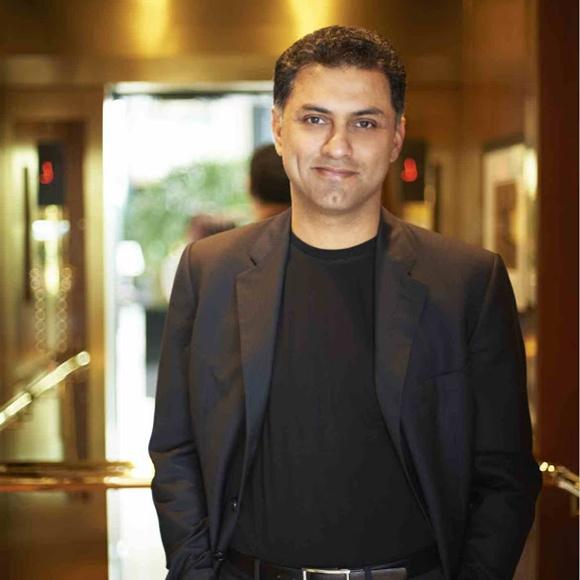
Japan's SoftBank Corp unveiled a management reshuffle on Monday, appointing investments head Nikesh Arora as president and naming him as a potential successor to CEO Masayoshi Son, as the telecoms conglomerate steps up its overseas expansion.
The move comes as Son and SoftBank are battling to make their 2013 acquisition of U.S. carrier Sprint Corp for more than $20 billion profitable.
A sluggish Japanese economy is forcing the company to increasingly look overseas for growth.
Announcing Arora's appointment at SoftBank's earnings conference, billionaire Son, who is relinquishing the president's post, said the former Google Inc executive was a "strong candidate" to lead the company in future.
"Yes. He's 10 years younger than me, and he has more abilities than me," Son told reporters, when asked if Arora was a potential candidate to succeed him.
"The last nine months I've spent with him have made me sure of that, but I'm not going to retire soon," Son said.
Arora was hired in July to run a newly created unit called SoftBank Internet and Media Inc, reporting directly to Son.
He had previously been one of the most powerful Google executives, and the highest paid in 2012 when he made $51 million in cash and stock.
Since joining SoftBank, Arora has overseen investments into Indian technology start-ups Snapdeal, Ola Cabs and Housing.com, with the company planning to invest $10 billion in India's potentially huge but under-developed online retail market.
In an interview with Reuters on Monday, Arora said he had looked at 45 technology companies in India, but chosen just those three for investments so far.
He said he has three criteria for making investments - the market size, quality of the team, and the right business model.
"Maybe overtime, as we get an interesting portfolio, maybe we'll find ways of getting them to talk to each other and do something together," Arora told Reuters.
"But for now, our intention is to just focus on great entreprenuers, great businesses, and great markets where we can invest."
Arora will assume his new role on June 19.
CHALLENGES AT SPRINT
SoftBank has been weighed down by the costs of trying to turn around Sprint, which has been in intense competition with larger U.S. rivals AT&T Inc and Verizon Communications Inc.
Sprint, in which SoftBank owns 80 percent, has undergone a long-haul revamping of its network, shedding thousands of jobs and triggering a mass exodus of subscribers.
SoftBank is also the largest investor in Chinese e-commerce giant Alibaba Group Holding Ltd, with a 32.59 percent stake that Arora said was unlikely to be sold anytime soon.
The company has made a string of other investments in recent years, including $250 million in privately-held Hollywood movie studio Legendary Entertainment, and $600 million in Travice Inc, the operator of Chinese taxi hailing app Kuaidi Dache.
"We expect more investments and acquisitions, even more so than now," Son said. "Going forward, the overseas market will be the main factor for SoftBank."
SoftBank posted a 9 percent fall in operating profit for the year ended March to 982.7 billion yen ($8.2 billion), hurt by the absence of one-time gains enjoyed the year before.
That compared with its own forecast of 900 billion yen and was a shade better than the 980.87 billion average estimate of 20 analysts, according to Thomson Reuters StarMine.
The company did not issue a forecast for the current fiscal year, saying it was difficult to provide estimates due to a large number of uncertain factors.







 © 2025
© 2025